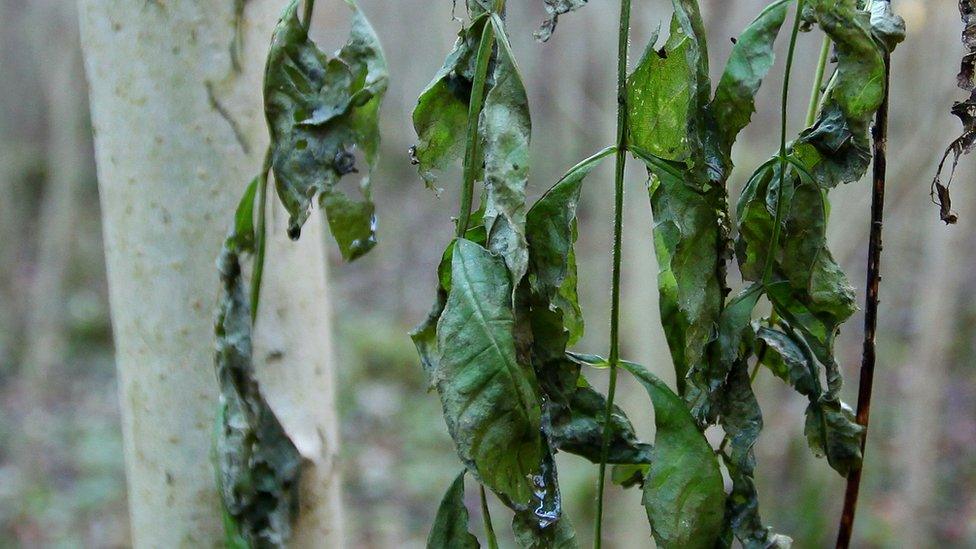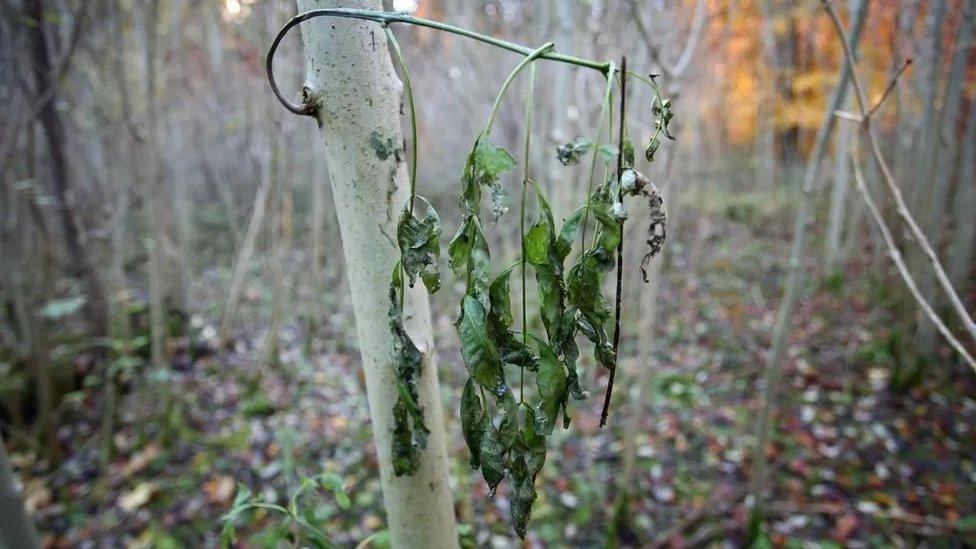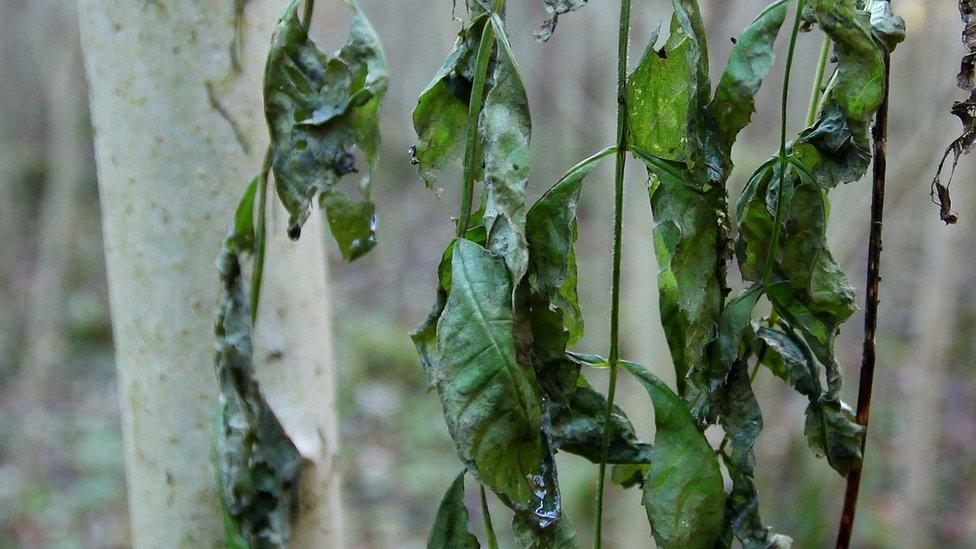Redcar: Ash dieback tree felling could take 'several years'
- Published

Ash dieback, triggered by a fungus, is originally from eastern Asia and arrived in the UK in 2012
Felling diseased trees infected by ash dieback could take "several years" because of the "scale of the problem", a council has warned.
Redcar and Cleveland Borough Council is due to embark on a fresh programme of felling and pruning ash trees, which can become unstable when afflicted.
A number of roads including the A171 are set to close in the next few weeks.
However, trees will only be felled where necessary because it is currently the bird nesting season.
The disease, known as Chalara, is caused by an airborne fungus and has caused widespread destruction since it arrived in the UK 11 years ago.
Redcar and Cleveland council said it had already removed and pruned trees at Birk Brow, Slapewath, Normanby, Nunthorpe and Marske.
'Danger to people'
Adam Brook, cabinet member for neighbourhoods and housing, said: "The impact ash dieback is having across the UK is devastating.
"Our focus is on decaying trees before they become dangerous to members of the public and motorists".
Mr Brook said, although the disease cannot be eradicated from the UK, some trees are affected faster than others and many require felling to prevent its spread.
"While it is sad to see the loss of trees, public safety is our utmost priority, and we must ensure that they do not become a danger to people or properties."
The council has planted more than 22,000 trees in the last two years as part of its work to "create a greener borough and to increase biodiversity in the area".
Earlier this week, Newcastle City Council said it was inspecting the city's ash trees, with some already successfully removed.

Follow BBC North East & Cumbria on Twitter, external, Facebook, external and Instagram, external. Send your story ideas to northeastandcumbria@bbc.co.uk, external.
Related topics
- Published26 January 2023

- Published18 December 2021
